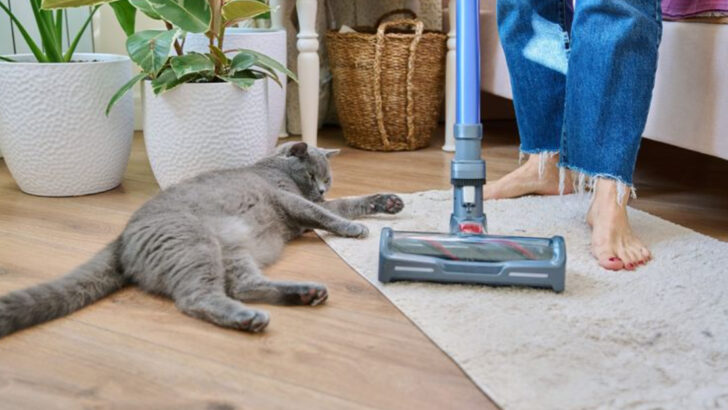No one wants to walk into their home and be hit with that unmistakable cat smell.
Litter boxes, fur, and dander can take over fast, leaving your space less than fresh—especially if you have allergies. Sneezing fits and stuffy noses are bad enough without adding lingering odors to the mix.
The good news? You don’t have to choose between loving your cat and loving a clean, fresh-smelling home. A few simple habits can keep your space free of cat-related funk while making life easier for allergy sufferers.
From litter box hacks to air-purifying tricks, these 19 tips will help you breathe easy—literally.
Regular Litter Box Cleaning
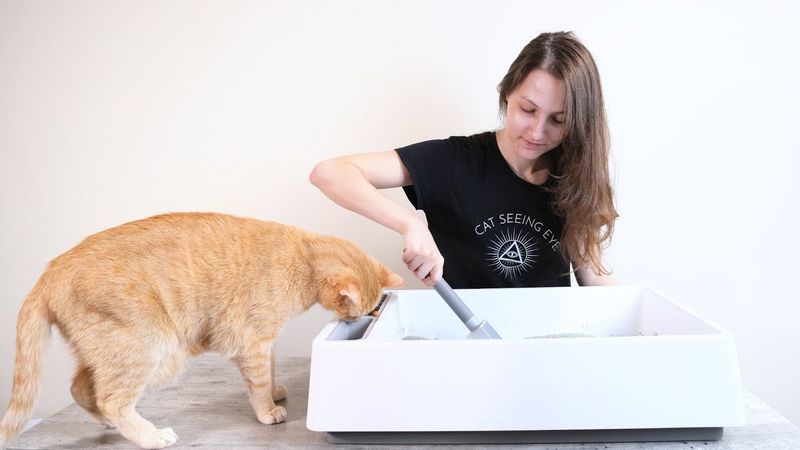
Keeping the litter box clean is paramount in controlling cat odors. Clean it daily, removing clumps and adding fresh litter to maintain a neutral smell. Use a litter designed to neutralize odors and consider a covered box to contain smells.
A clean litter box not only keeps your home smelling fresh but also encourages your cat to use it consistently, reducing accidents elsewhere in your home. Regular cleaning also minimizes dust, beneficial for allergy sufferers.
Investing in a self-cleaning litter box can further ease the burden by automating the process and ensuring consistent cleanliness.
Use Air Purifiers
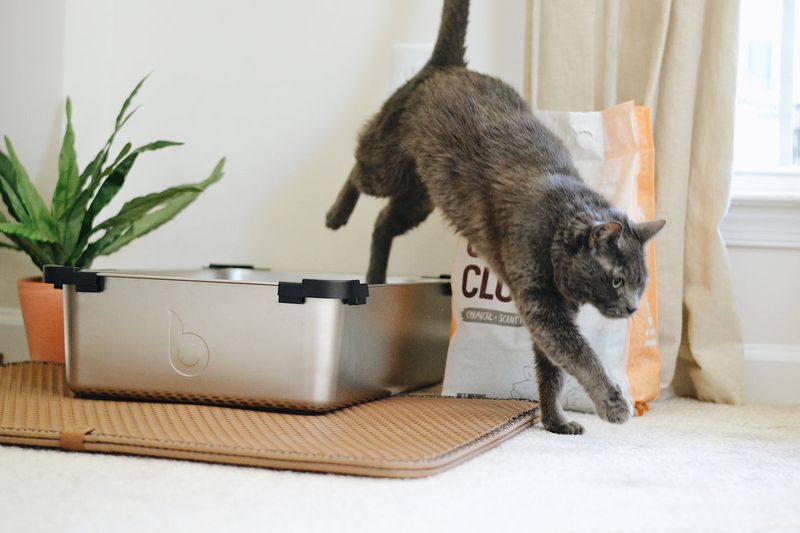
Air purifiers with HEPA filters can significantly reduce cat odors and allergens. Place them strategically around your home, particularly in areas where your cat spends most of its time.
These devices work by trapping tiny particles, including dander and dust, that contribute to unpleasant smells and allergy symptoms. Running an air purifier continuously can help maintain a fresh smelling home atmosphere.
Choose a model with a carbon filter for enhanced odor control, ensuring it’s the right size for your room for optimal performance.
Ventilation Is Key

Proper ventilation is essential in managing home odors. Open windows regularly to allow fresh air to circulate, diluting and carrying away any lingering smells.
Natural airflow helps in reducing airborne allergens by dispersing them throughout the space rather than letting them accumulate. Ensure your home’s ventilation system is well-maintained and consider adding extractor fans in areas like kitchens and bathrooms.
This simple practice not only keeps your home smelling fresh but also creates a healthier environment for those sensitive to allergens.
Utilize Baking Soda
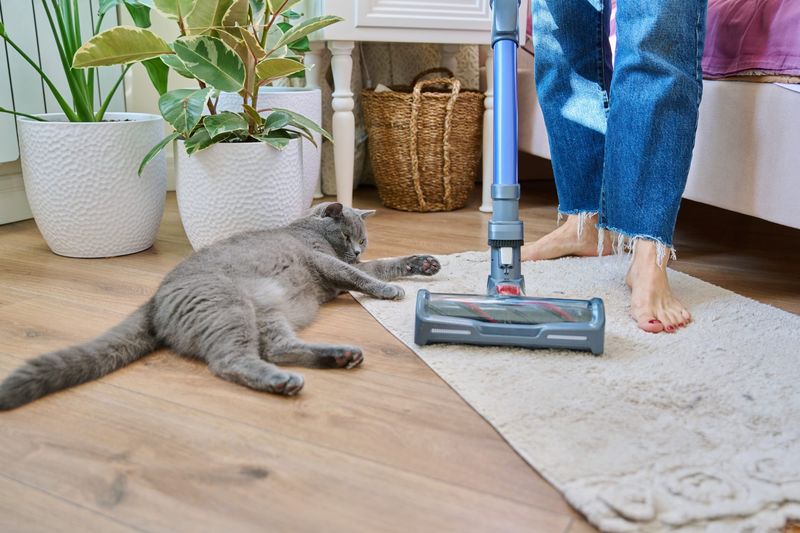
Baking soda is a natural odor neutralizer and can be used throughout your home. Sprinkle it on carpets, rugs, and upholstery, leaving it for a few hours before vacuuming.
Its absorptive properties capture and neutralize odors, ensuring your home smells fresh and clean. You can also place open boxes of baking soda in areas where cats frequent, like litter boxes and sleeping spots.
This simple, cost-effective solution is safe for pets and humans alike, making it an ideal choice for allergy sufferers seeking to minimize odors naturally.
Regular Grooming
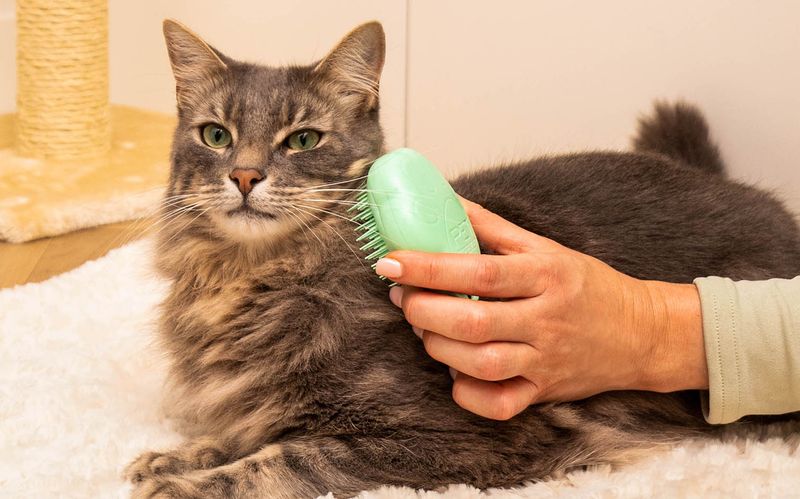
Regular grooming is not only good for your cat’s health but also beneficial for odor control. Brushing your cat removes excess fur and dander, reducing shedding and the spread of allergens around your home.
Bathing your cat occasionally with pet-safe shampoos can further help control odors. For cats that dislike water, dry shampoos and grooming wipes offer an alternative means of keeping them fresh.
A well-groomed cat contributes to a cleaner home environment, making it more pleasant for allergy sufferers and ensuring your space smells inviting.
Wash Pet Bedding
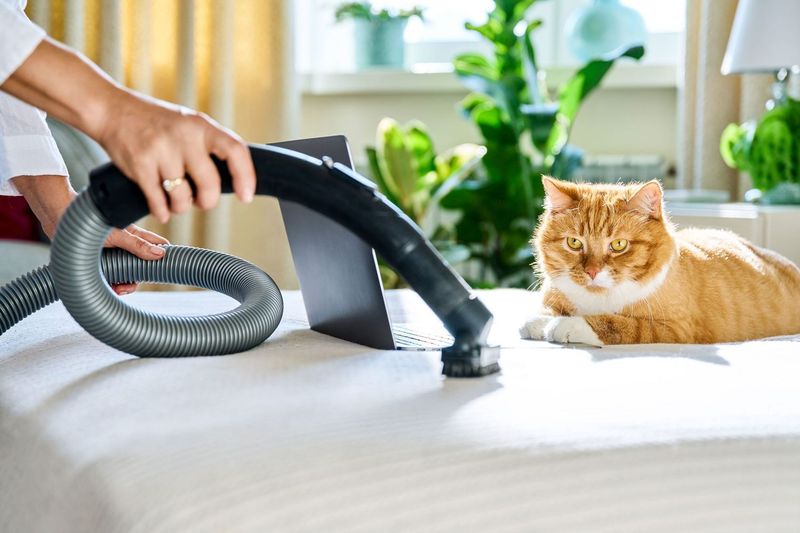
Pet bedding can harbor odors and allergens, making regular washing essential. Choose machine-washable bedding and wash it weekly to remove fur, dander, and smells.
Use a pet-safe detergent that effectively cleans without leaving harmful residues that could affect your cat. Consider adding a cup of vinegar to the rinse cycle for an extra boost in odor control.
Clean, fresh bedding not only enhances your home’s aroma but also provides a comfortable resting place for your cat, keeping them and your home healthier.
Use Enzymatic Cleaners
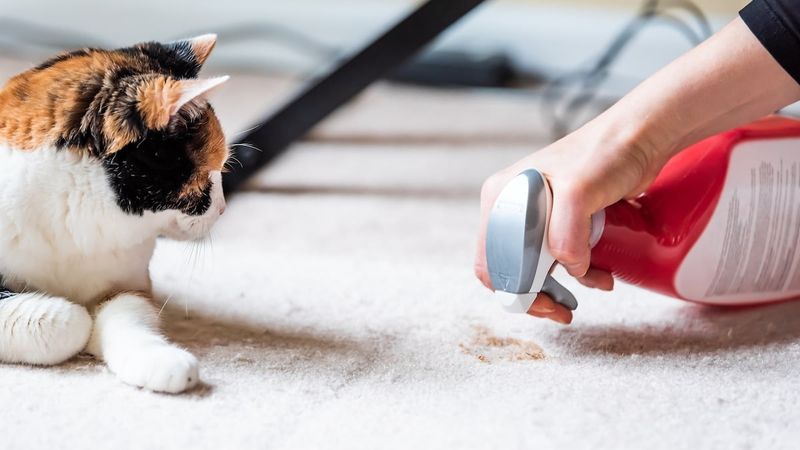
Enzymatic cleaners are specially formulated to break down stains and odors at their source, making them indispensable in a pet-friendly home. Use these cleaners for accidents outside the litter box or on any surfaces your cat frequents.
The enzymes work by digesting the organic materials that cause odors, leaving your home smelling fresh. These cleaners are safe for most surfaces, including carpets, upholstery, and hard floors.
Regular use of enzymatic cleaners can prevent odors from setting in, maintaining a pleasant environment for both you and your feline friend.
Invest in Odor Neutralizing Products
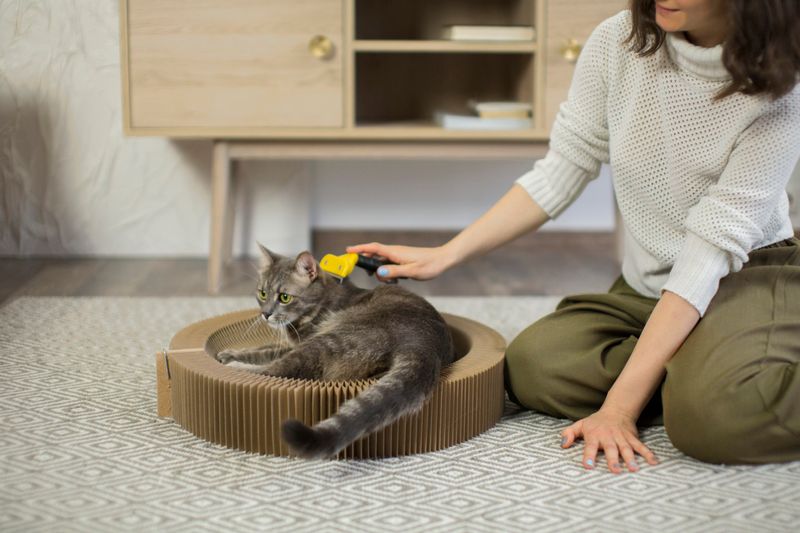
Odor neutralizing products, such as sprays and gels, can help keep your home smelling fresh. Choose products specifically designed to combat pet odors and use them in problem areas.
These products work by neutralizing the molecules that cause unpleasant smells instead of just masking them. Opt for non-toxic, hypoallergenic options to ensure they are safe for both pets and allergy sufferers.
With regular use, these products can significantly reduce persistent odors, making your home more inviting and comfortable for everyone.
Keep Floors and Carpets Clean
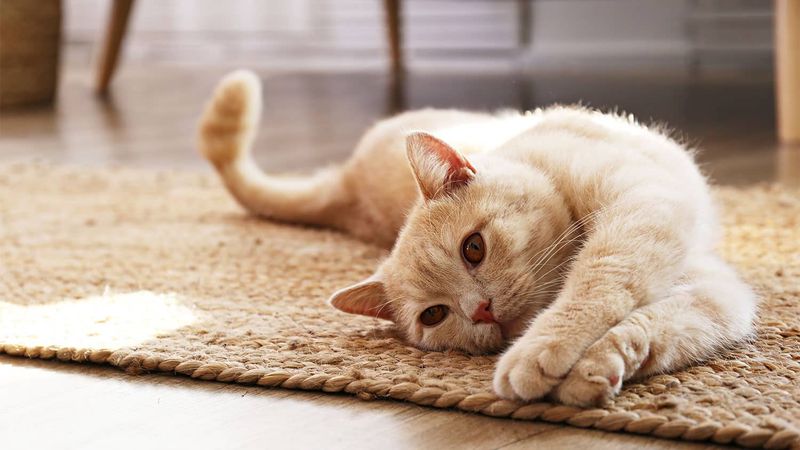
Floors and carpets can trap odors and allergens, so keeping them clean is crucial. Vacuum regularly with a vacuum cleaner equipped with a HEPA filter to capture fine particles.
Consider using a robotic vacuum for daily maintenance, especially in homes with multiple pets. Shampoo carpets and rugs periodically to remove deep-seated dirt and odors.
Keeping floors and carpets clean not only maintains a fresh-smelling home but also reduces allergens in the environment, providing relief for allergy sufferers.
Natural Air Fresheners
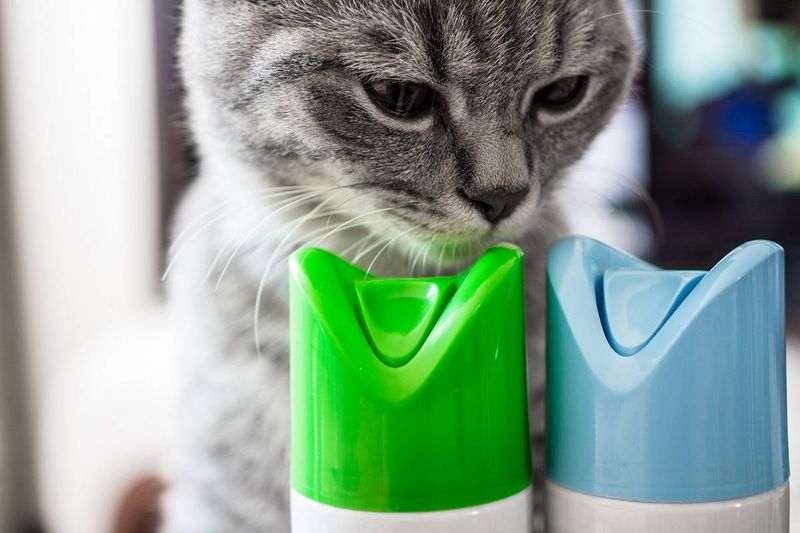
Natural air fresheners, such as essential oils and potpourri, offer a pleasant alternative to chemical sprays. They can be used throughout your home to enhance the atmosphere with natural scents.
Choose pet-safe essential oils like lavender or chamomile, and diffuse them in areas where your cat doesn’t spend a lot of time. Potpourri made from dried flowers and herbs can also add a subtle fragrance to your space.
These natural options are gentle and appealing, ensuring your home smells fresh and remains a safe space for allergy sufferers.
Regular Home Cleaning Routine
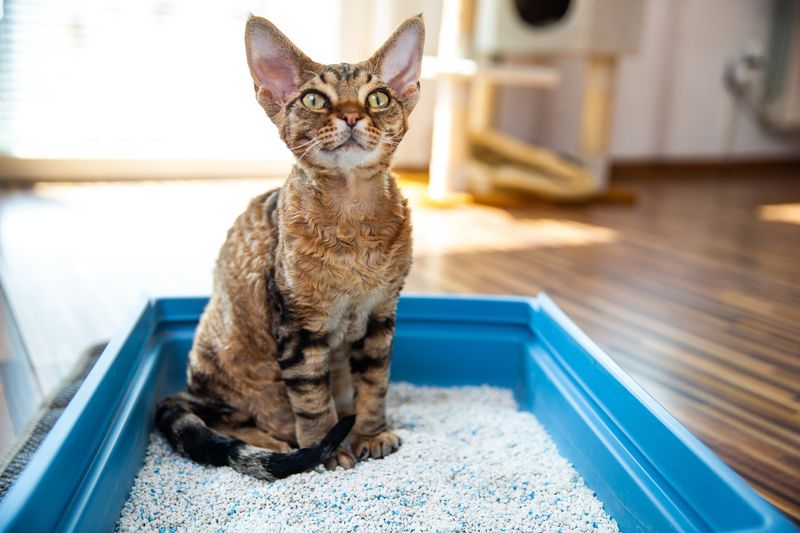
Establishing a regular cleaning routine is key to managing odors and allergens. Weekly dusting, vacuuming, and mopping can prevent smells from becoming overpowering.
Use microfiber cloths and mops to trap dust and dander effectively, ensuring your cleaning efforts are thorough. Regularly launder curtains, cushion covers, and other fabrics that can harbor odors.
A clean home not only smells better but is also healthier for everyone, particularly those with allergies. Consistency in cleaning practices fosters a welcoming environment for both humans and pets.
Control Humidity Levels
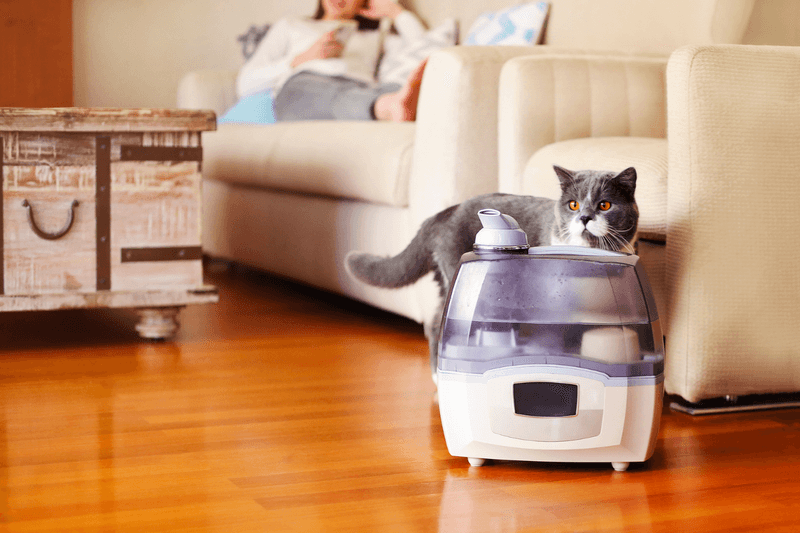
Maintaining the right humidity level can impact odors significantly. High humidity can enhance smells and promote mold growth, which can worsen allergies.
Use a dehumidifier to keep humidity levels in check, particularly in areas like basements or bathrooms where moisture collects. A hygrometer can help monitor and adjust humidity to optimal levels.
Controlling humidity not only reduces odors but also makes your home more comfortable and healthier, especially for allergy sufferers sensitive to mold and mildew.
Strategically Place Litter Boxes

The location of your litter box can influence how odors spread throughout your home. Place boxes in well-ventilated areas, away from common living spaces like kitchens and bedrooms.
Consider using decorative screens or furniture-like covers to integrate the box into your home decor while still providing privacy and accessibility for your cat.
Strategic placement ensures odors are contained and not overpowering, maintaining a pleasant environment for everyone. Regularly rotating litter box locations can also help distribute wear and reduce smells.
Use Scented Litters
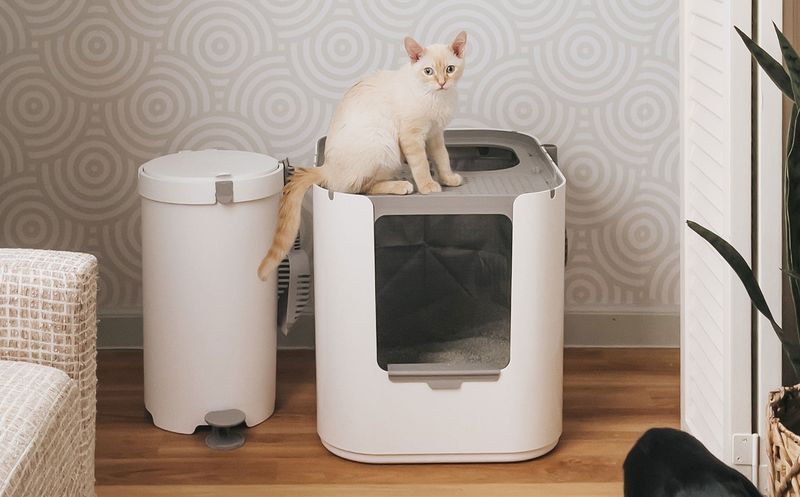
Scented litters can be an effective way to mask odors between cleanings. Choose a scent that complements your home and isn’t overpowering.
These litters often contain agents that trap odors, releasing pleasant fragrances as your cat uses the box. Be mindful of your cat’s preference, as some might find scents off-putting.
Test different brands to find one that both you and your cat are comfortable with, ensuring it effectively masks odors without irritating your cat or allergy sufferers.
Maintain a Fresh Diet for Your Cat
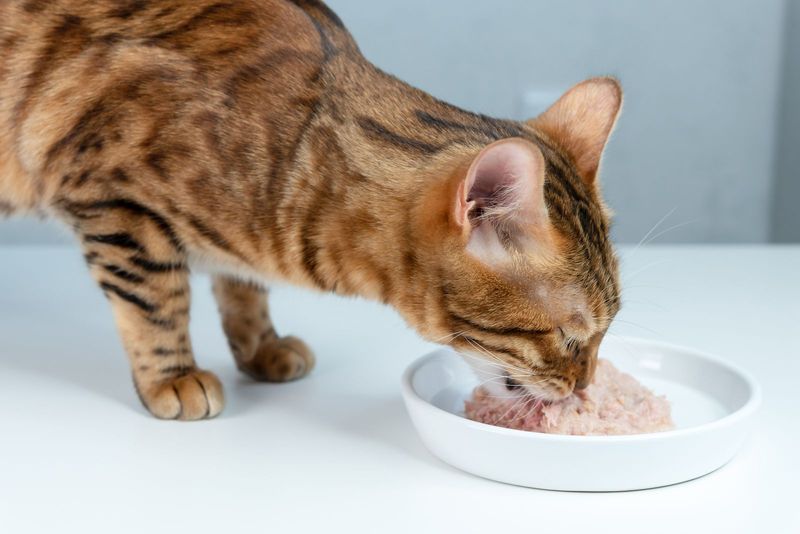
Your cat’s diet can influence the smell of their waste. High-quality, easily digestible foods can reduce the intensity of odors.
Opt for foods rich in proteins and low in fillers, as these are typically easier for your cat to process, resulting in less smelly waste. Discuss dietary changes with your vet to ensure they meet your cat’s nutritional needs.
A balanced diet not only benefits your cat’s health but also contributes to a fresher-smelling home, making it more pleasant for allergy sufferers and other residents.
Use UV Light for Spot Cleaning
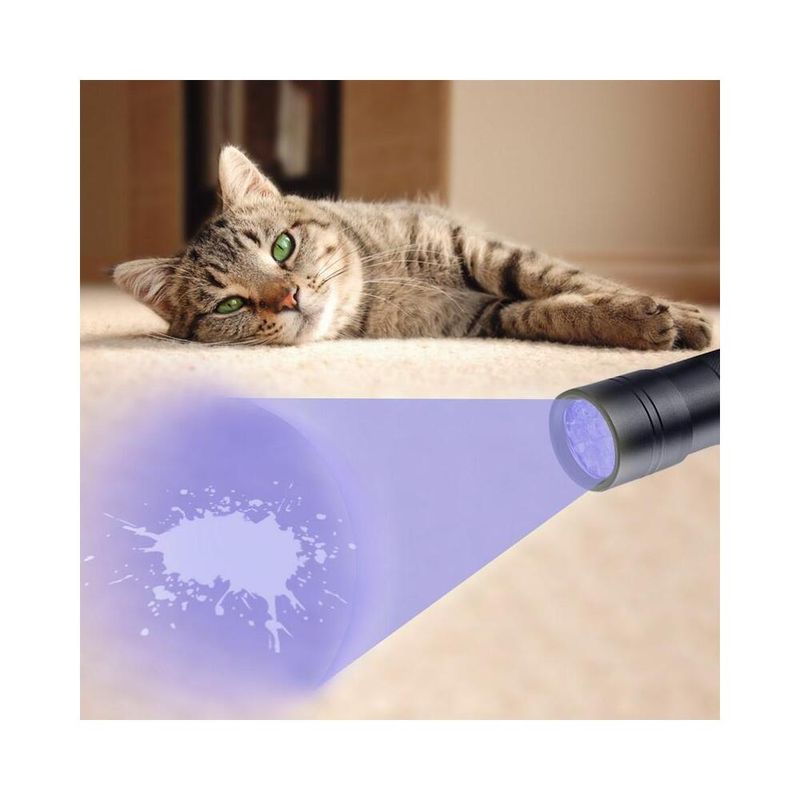
UV lights can help identify stains and spots invisible to the naked eye, making cleaning more effective. Use a UV light to locate and treat areas that may contribute to odors.
Once identified, use enzymatic cleaners to neutralize these spots. This method ensures that hidden smells are addressed, keeping your home fresh and odor-free.
Regular checks with a UV light can prevent long-term odor build-up, contributing to a cleaner and healthier living environment, especially beneficial for those with allergies.
Regular Vet Check-Ups

Routine vet check-ups can catch health issues that might cause unusual smells, such as dental problems or skin infections. Early detection and treatment not only keep your cat healthy but also help maintain a fresh home environment.
A vet can recommend dietary adjustments or hygiene practices tailored to your cat’s needs, further reducing odors linked to health issues.
Regular veterinary care is a proactive approach to ensuring your cat remains a happy, healthy companion, contributing to a pleasant-smelling home.
Install a Pet Door
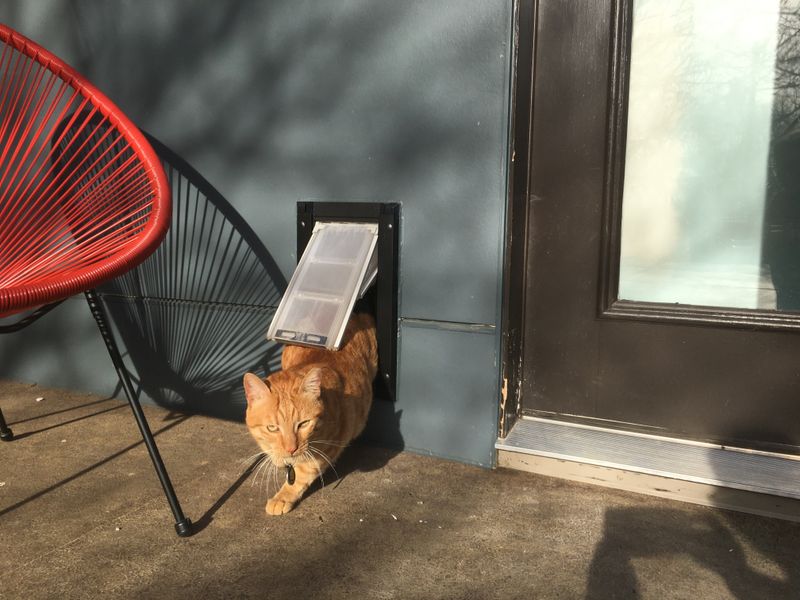
Installing a pet door can provide your cat with more freedom and reduce indoor odors. When cats have easy access to the outdoors, they might be less inclined to use indoor litter boxes as frequently.
This can help decrease the frequency of box cleaning and the related smells. Ensure the pet door is secure and leads to a safe outdoor environment.
Providing outdoor access can contribute to a fresher home atmosphere, benefiting those with allergies by reducing indoor allergens and odors.
Train Your Cat with Praise and Rewards

Positive reinforcement can be effective in managing your cat’s behavior, including litter box usage. Reward your cat with treats and praise when they use the box properly, encouraging consistent behavior.
A well-trained cat is less likely to have accidents, which helps in controlling odors. Training sessions also improve your bond, making your cat more responsive to your guidance.
This approach ensures a harmonious living environment, reducing the stress of unwanted smells while enhancing the overall quality of life for both you and your pet.

